Kittens have unique dietary requirements. They need more protein, fats, and certain vitamins than adult cats. This is because they grow rapidly and need extra energy. Kitten food is designed to support their growth and immune system. It also helps with brain and vision development.
Choosing the right food for your kitten is crucial. It ensures they get the nutrition they need. Proper nutrition in the early stages of life can lead to a healthier adult cat. So, what makes kitten food stand out? Let’s explore its unique benefits and why it’s essential for your furry friend.
Table of Contents
Introduction To Kitten Food
Understanding the importance of kitten food is crucial for new pet owners. Kittens have unique dietary needs that differ from adult cats. Providing proper nutrition is key to their growth and development.
Importance Of Proper Nutrition
Kittens grow rapidly during their first year. Proper nutrition supports their physical and mental development. Without the right nutrients, kittens can face health issues.
- Protein: Essential for muscle and tissue growth.
- Fat: Provides energy and supports brain development.
- Vitamins: Important for the immune system and overall health.
- Minerals: Necessary for bone development and strength.
Differences From Adult Cat Food
Kitten food is specially formulated to meet the high-energy needs of growing kittens. It contains more protein, fat, and calories compared to adult cat food.
| Nutrient | Kitten Food | Adult Cat Food |
|---|---|---|
| Protein | High | Moderate |
| Fat | High | Moderate |
| Calories | High | Lower |
Kitten food also has smaller kibble sizes. This makes it easier for kittens to chew and digest. Additionally, it contains added vitamins and minerals tailored to their needs.
Protein Content
Protein is essential in kitten food. It helps in their growth and development. Kittens need more protein than adult cats. This is because they are growing rapidly. High protein content supports muscle development, strong bones, and overall health.
Sources Of Protein
Kitten food contains different sources of protein. Common sources include:
- Chicken: A primary source, rich in amino acids.
- Fish: Provides essential fatty acids and proteins.
- Beef: Another good source of protein and nutrients.
- Eggs: Packed with proteins and easy to digest.
These sources provide high-quality protein. They help in the proper growth of kittens. Each source has unique benefits.
Benefits Of High Protein
| Benefit | Description |
|---|---|
| Muscle Growth | Helps in developing strong and healthy muscles. |
| Immune System | Boosts the immune system to fight off diseases. |
| Energy | Provides the energy needed for playful activities. |
| Bone Health | Supports the formation of strong bones. |
High-protein food is vital for kittens. It ensures they grow into healthy adult cats. Choosing the right food can make a big difference.
Essential Vitamins
Kitten food contains essential vitamins that are crucial for their growth. These vitamins help support their immune system, vision, and overall health. Let’s explore some key vitamins that make kitten food special.
Vitamin A
Vitamin A is vital for a kitten’s vision and immune system. It helps them see better in low light and supports their eye health.
- Improves night vision
- Boosts immune function
- Supports skin and coat health
Without enough Vitamin A, kittens may face vision problems and a weakened immune system. It is found in the liver, fish oils, and dairy products.
Vitamin E
Vitamin E acts as an antioxidant in kitten food. It protects cells from damage and supports muscle function.
- Prevents oxidative damage
- Supports muscle health
- Enhances immune response
Vitamin E deficiency can lead to muscle weakness and poor immune health. It is present in vegetable oils, nuts, and leafy green vegetables.
Minerals For Growth
When it comes to kitten food, the inclusion of essential minerals is crucial for their growth and development. These minerals play a significant role in ensuring that kittens grow into healthy, strong cats. Let’s dive into two of the most important minerals: calcium and phosphorus.
Calcium
Calcium is a vital mineral for kittens. It supports the development of strong bones and teeth. A good amount of calcium in kitten food helps in preventing bone deformities and dental issues. Inadequate calcium can lead to weak bones and other health problems.
Calcium also aids in muscle function and nerve transmission. This mineral ensures that kittens can play and move without issues. Thus, a balanced diet with adequate calcium is essential for their overall health.
Phosphorus
Phosphorus works hand in hand with calcium. It is another critical mineral for a kitten’s growth. This mineral plays a key role in bone formation and energy production. Phosphorus ensures that a kitten’s body can use the energy from food efficiently.
A proper balance of phosphorus in kitten food helps in healthy kidney function. It also supports the growth of healthy tissues and organs. Ensuring your kitten gets enough phosphorus is vital for their growth and vitality.
| Mineral | Function | Importance |
|---|---|---|
| Calcium | Bone and teeth development, muscle function | Prevents bone deformities and dental issues |
| Phosphorus | Bone formation, energy production | Supports healthy kidneys and tissues |
Fatty Acids
Fatty acids are essential nutrients in kitten food that support overall growth and development. These nutrients are vital for brain function, vision, and a healthy immune system. Let’s explore the specific benefits of two important types of fatty acids: Omega-3 and Omega-6.
Omega-3 And Omega-6
Omega-3 and Omega-6 fatty acids play crucial roles in a kitten’s diet. Omega-3 fatty acids help in brain development and cognitive function. They are important for a kitten’s learning and memory.
Omega-6 fatty acids support healthy growth and energy levels. They are also necessary for proper cell function and immune system support. For optimal health, kitten food must balance both types of fatty acids.
Healthy Skin And Coat
Fatty acids contribute significantly to a kitten’s skin and coat health. Omega-3 fatty acids help reduce inflammation and promote a shiny coat. They are beneficial for kittens with sensitive skin or allergies.
Omega-6 fatty acids maintain the skin’s integrity and hydration. A good balance of these fatty acids prevents dryness and flakiness. This results in a soft, smooth coat that looks and feels healthy.
Taurine Importance
Taurine is an essential amino acid for kittens. It plays a vital role in their growth and development. Unlike dogs, cats cannot produce taurine on their own. They must get it from their diet. Kitten food is specially formulated to meet this need. Let’s explore the importance of taurine in more detail.
Heart Health
Taurine is crucial for maintaining a healthy heart. It helps regulate the heart’s function and rhythm. A lack of taurine can lead to heart disease. This is especially true for kittens, whose small hearts need extra support. Proper levels of taurine in kitten food ensure heart health, which prevents conditions like dilated cardiomyopathy.
Vision Development
Taurine is also vital for eye health. It supports vision development in kittens. Their eyes grow rapidly in the first few months. Taurine helps in the formation of the retina. Without enough taurine, kittens can suffer from vision problems. This can lead to blindness. Ensuring taurine in their diet protects their sight. Kitten food is designed to provide this critical nutrient.
Hydration Needs
Hydration is crucial for kittens. Proper hydration supports their growth and health. Kittens have different hydration needs compared to adult cats. They need more water to stay healthy. Ensuring they get enough water is key to their well-being. Let’s explore how kitten food meets these hydration needs.
Moisture In Food
Kittens need food with high moisture content. This helps them stay hydrated. Wet kitten food contains more water than dry food. It can provide up to 80% moisture. This is much higher than dry food, which has about 10% moisture.
Wet food helps kittens get the water they need. It also makes their meals more palatable. Kittens are more likely to eat food that is moist and flavorful.
| Food Type | Moisture Content |
|---|---|
| Wet Food | Up to 80% |
| Dry Food | About 10% |
Encouraging Water Intake
Besides feeding moist food, it’s important to encourage water intake. Here are some tips:
- Provide fresh water daily.
- Use shallow bowls for easier access.
- Place water bowls in multiple locations.
- Consider a cat water fountain. The moving water can attract kittens.
Monitor your kitten’s water intake. Ensure they drink enough water each day. This helps prevent dehydration and supports their overall health.
Understanding the hydration needs of your kitten is essential. By offering moist food and encouraging water intake, you can help keep your kitten healthy and happy.
Choosing The Right Kitten Food
Kitten food contains extra nutrients to support growth and development. Smaller kibble sizes help kittens chew and digest easily. Balanced formulas ensure healthy bones, muscles, and immune systems.
Selecting the right food for your kitten is crucial. Their early nutrition impacts their growth and health. Kittens have specific dietary needs. They require high protein, vitamins, and minerals. These nutrients support their rapid growth and energy levels.
So, how do you choose the best food? Start by reading labels. Look for trusted brands. Not all kitten food is the same. Quality matters.
Reading Labels
Reading labels is essential. It helps you understand what you are feeding your kitten. Check for high-quality protein sources. Ingredients like chicken or fish should be the first listed. Avoid foods with fillers like corn or soy.
Labels also show the percentage of nutrients. Kittens need more protein and fat than adult cats. Look for foods with at least 30% protein and 20% fat.
Check for essential vitamins and minerals. Calcium, phosphorus, and taurine are critical. They support bone growth and heart health.
Recommended Brands
Many brands offer high-quality kitten food. Royal Canin is one popular choice. Their formulas meet a kitten’s nutritional needs.
Another excellent brand is Blue Buffalo. They use natural ingredients and avoid artificial additives.
Hill’s Science Diet also provides balanced nutrition. Their products are often recommended by vets.
Each brand has different flavors and textures. Find one your kitten enjoys. Their preference matters too.
Frequently Asked Questions
What Nutrients Are Essential In Kitten Food?
Kitten food should contain high-quality protein, fats, and essential vitamins. These nutrients support growth and development. Look for kitten-specific formulas.
How Is Kitten Food Different From Adult Cat Food?
Kitten food has higher protein and fat content. It includes additional nutrients for growth. Adult cat food lacks these extra nutrients.
Can Kittens Eat Regular Cat Food?
Kittens need special food formulated for their growth needs. Regular cat food doesn’t provide the necessary nutrients for kittens.
How Often Should I Feed My Kitten?
Kittens should be fed 3-4 times a day. Their small stomachs require frequent, smaller meals for optimal growth.
Conclusion
Kitten food offers unique benefits for your young cat’s growth. It provides essential nutrients and supports healthy development. The right food ensures strong bones and a shiny coat. It also aids in brain development and strengthens the immune system. Choosing specialized kitten food promotes a happier, healthier pet.
Ensure your kitten gets the best start in life. Investing in quality kitten food makes a big difference. Your kitten deserves the best nutrition available. This small step leads to a lifetime of health and joy.
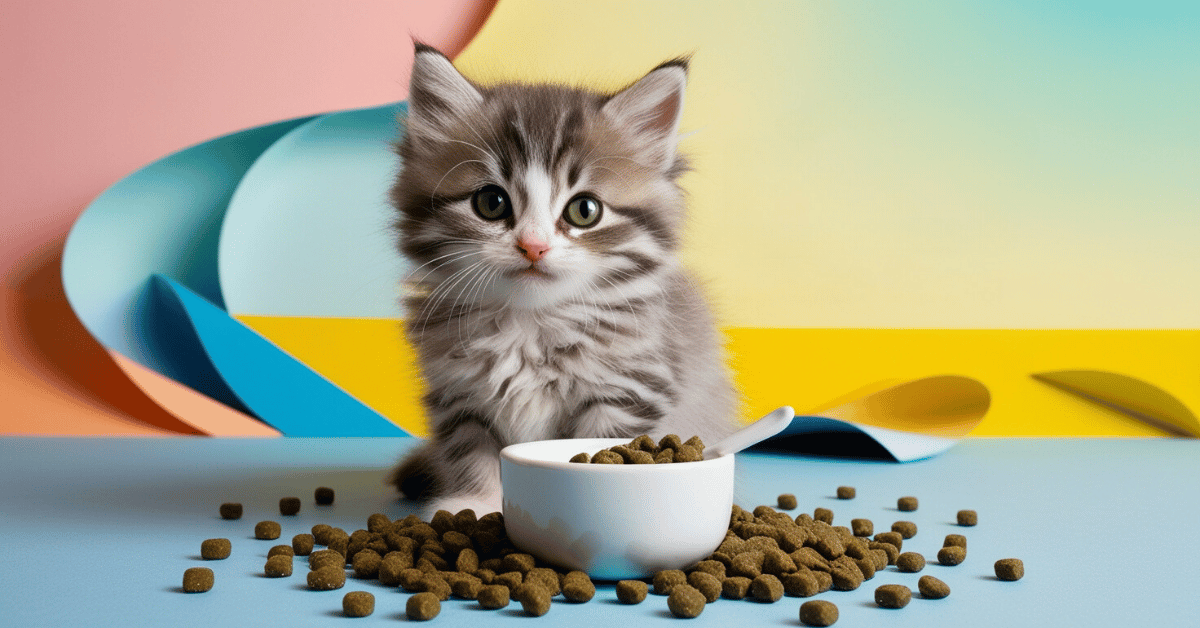
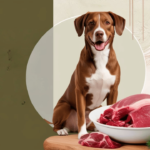
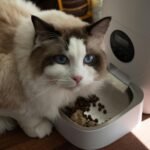


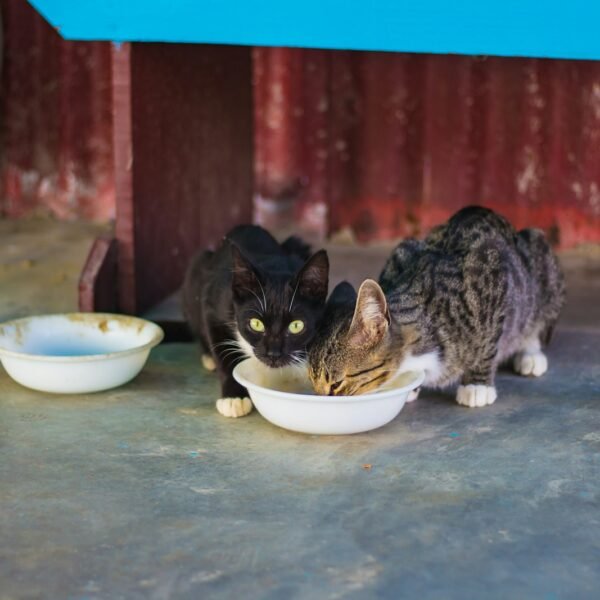
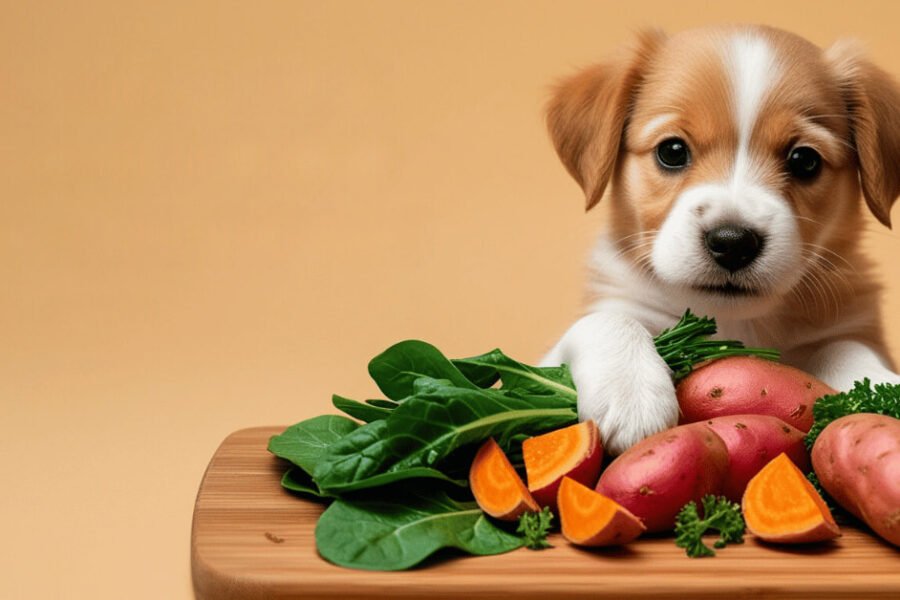
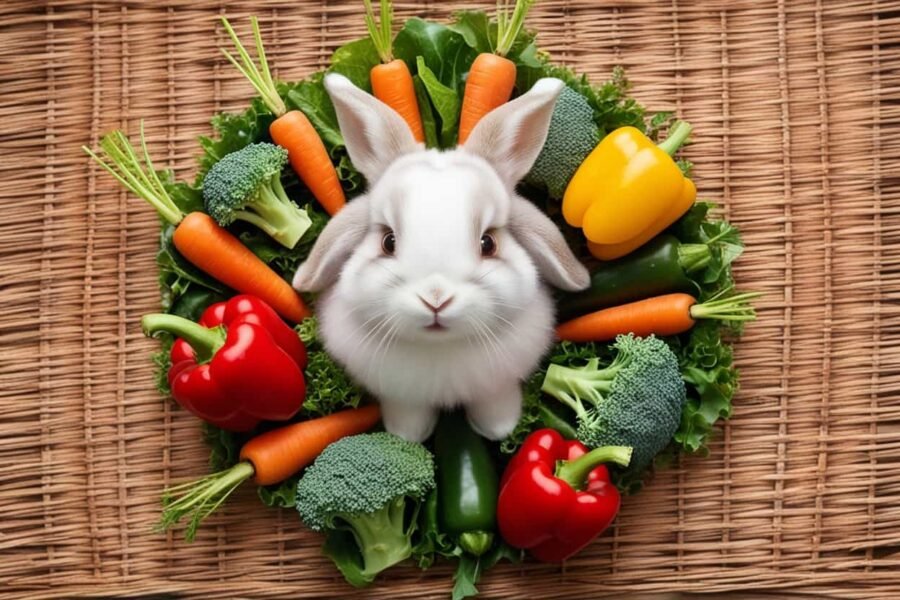
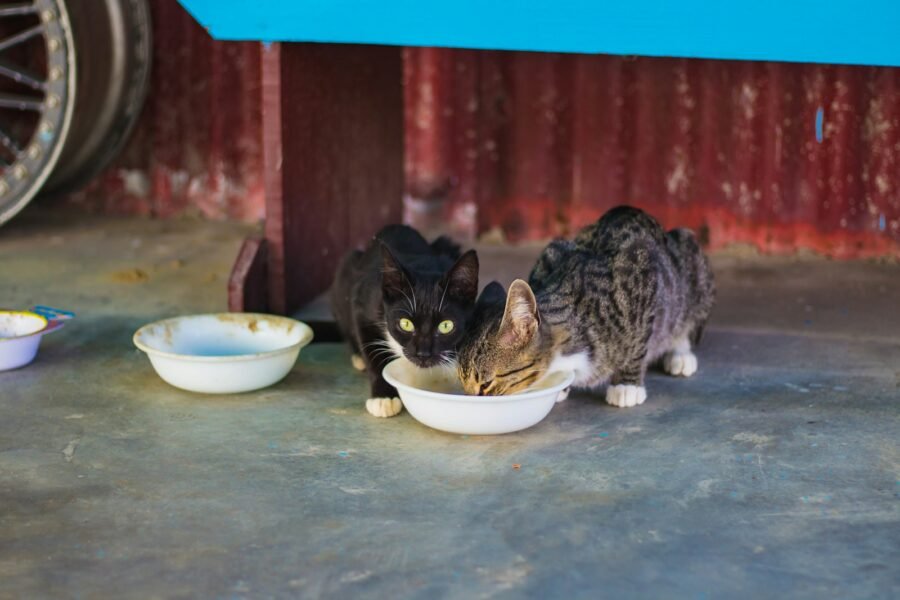
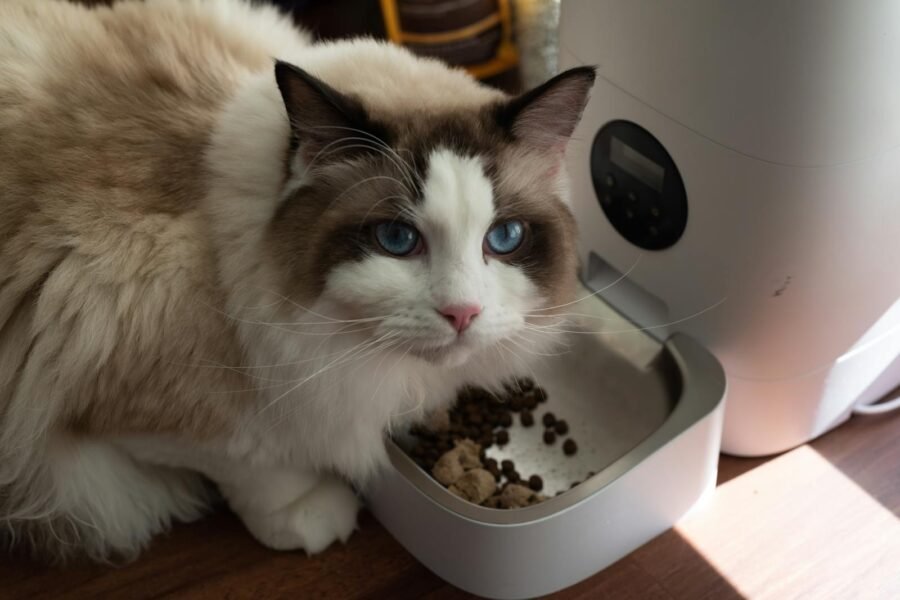
Sign up